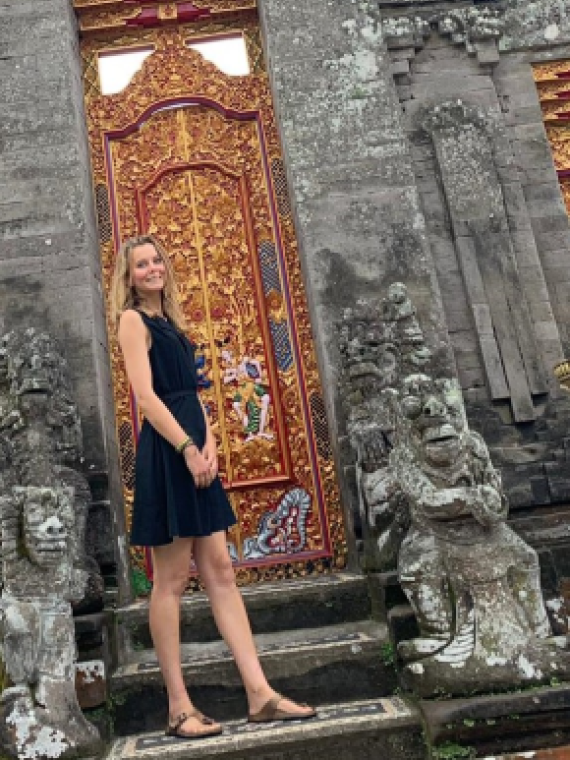Text: Anne van der Heijden
‘I was doing a minor on Climate Change and natural Disasters in New Zealand when I needed to get more points for the Honours Programme I was taking as well. I decided to do that by doing an internship in South Asia. But I had no idea what or how until I heard about IFSCA during a lecture. IFSCA is a Massey University project in Indonesia, which helps farmers set up a sustainable agricultural business. When I spoke to the teacher after class, he was very enthusiastic and it was sorted straightaway, really: I could go there and do my internship in Agricultural Development.’
Disaster

Two weeks later, Lombok was struck by an earthquake that destroyed a lot of houses. Many farmers fled and the research centre was damaged. It was touch and go whether the project would continue. ‘There were a number of aftershocks, but I got the go-ahead just before I left for Indonesia. I boarded the plane with great relief.’
‘When I arrived, I saw the devastation caused by the earthquake. On ground where houses once stood, there were now heaps of bricks. The harvest was destroyed and many farmers had lost their investments. Many of them had fled and were afraid to come back.’
Construction kits

The government sent teams to all the villages, to help rebuild the houses together with the villagers. They had to use new techniques. Their old building method was not good or sturdy enough. The government gave people money and construction kits for rebuilding their houses. ‘The IFSCA project where I was doing my internship had always been involved with the farmers and after the earthquake, the farmers could appeal to the project for help with rebuilding the villages. The people at IFSCA helped the villagers to restore everything as fast as possible. The aid was small-scale and in this case that worked better than large-scale aid because it was very specifically channelled to the farmers. That was very efficient. That is what my research was about in the end: methods of recovery after an earthquake. The change of plan was a bit of a silver lining for me, because I was already doing a minor on natural disasters. This internship was going to focus on agriculture, and now – through an accident of fate – I could combine the two.’

